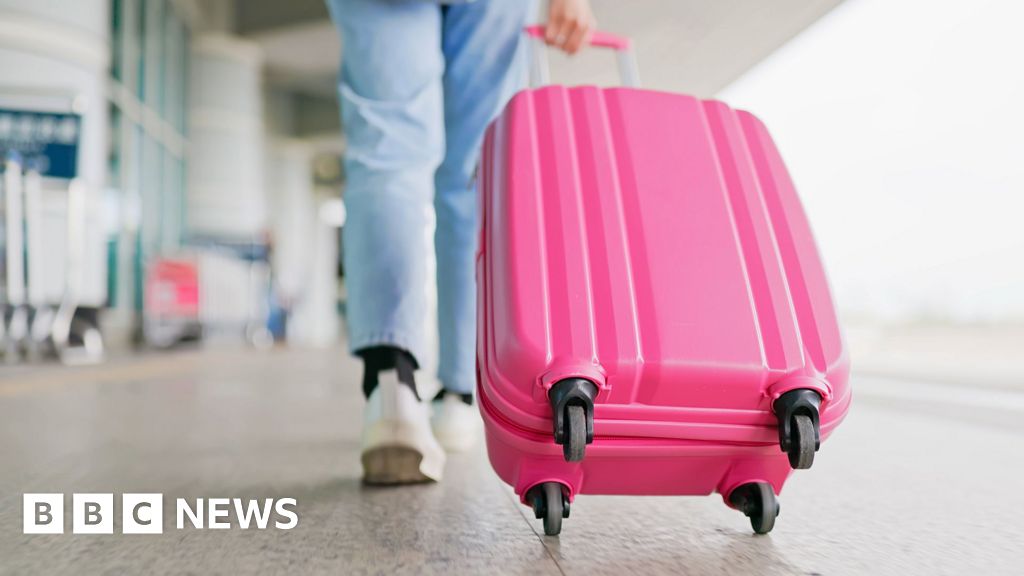ARTICLE AD BOX
On Saturday afternoon, a bright red tanker carrying 33,000 tonnes of Russian diesel sailed up the Thames and delivered its cargo in Grays, Essex.
Its arrival - which doesn't violate sanctions - highlights the UK's dependence on Russia, which supplies nearly a fifth of the country's diesel.
The UK has pledged to stop importing Russian diesel by the end of the year: until then, the deliveries continue.
But the STI Comandante's journey from Primorsk on the Baltic sea does not flout the Ukraine-related sanctions on Russia, because the ship is owned by the US firm Scorpio Tankers and flies the flag of the Marshall Islands, a nation in the Pacific Ocean.
Some shipping lines including the global giants Maersk and MSC have chosen to suspend most deliveries to and from Russia.
Others have decided that as long as the trade is still legal and safe, they will continue.
It's a controversial choice. “This shipment of diesel, along with the other fossil fuels that have been allowed to enter the UK since Russia’s invasion of Ukraine, is filling Putin’s coffers and helping to fund the war. It has to stop,” said Emily Armistead, programme director at Greenpeace UK.
Greenpeace has set up an automated tracker to monitor movements of tankers leaving Russia, loaded with oil and diesel.
The STI Comandante was chartered by ST Shipping, a subsidiary of the commodity giant Glencore. Glencore doesn't necessarily own the diesel on board, though - it may well have been bought and sold many times while the boat was on the water.
Diesel prices rising faster than petrol
Phasing out Russian oil will be extremely hard, and diesel will be particularly difficult. Russia supplies 8% of the UK’s oil needs but 18% of its diesel, according to government figures.
Diesel is essential to a modern economy. Besides fuelling more than a third of UK cars, it powers trucks, buses, some trains, farming and construction equipment, and is used for generating electricity.
The Ukraine crisis has led to a shortage of diesel across Europe, which depends on Russia for about half of its diesel imports.
This shortage has been reflected in the prices that drivers pay for diesel at the pump, which have been rising faster than petrol prices.
The average price of diesel in the UK has risen 18% since the start of February, to 177p a litre, while the average cost of unleaded has risen by 11%, according to RAC Fuel Watch.
The faster rise “reflects the fact that the biggest immediate problem at the moment for the end user is diesel,” said Neil Crosby, senior oil analyst at OilX.
Other countries, including the US and Germany, have also seen sharply rising diesel prices.
The world faces a diesel shortage
Diesel supplies were tight before the crisis began, as demand for oil bounced back after pandemic lockdowns faster than producers could keep up.
“Stocks of lots of fuels are relatively low, but diesel in particular, in Europe, in the US and in Asia as well. The demand for diesel has been very strong up until the crisis, and that also contributed to that. There’s just an imbalance between supply and demand," said OilX’s Mr Crosby.
Finding alternative supplies to replace the diesel Britain buys from Russia will be made harder because many other countries around the world are also trying to wean themselves off Russian energy supplies at the same time.
There is no suggestion of pumps in the UK imminently running dry. But last week, the boss of one of the world’s biggest trading groups warned of possible diesel shortages around the world.
"The diesel market is extremely tight and we're possibly heading to stock-outs. Europe can probably afford to pay. The problem is what happens to Africa and Latin America," Jeremy Weir, the chief executive of Trafigura said on 22 March, according to the Reuters news agency.
Glencore and Scorpio Tankers declined to comment.

 3 years ago
38
3 years ago
38








 English (US) ·
English (US) ·